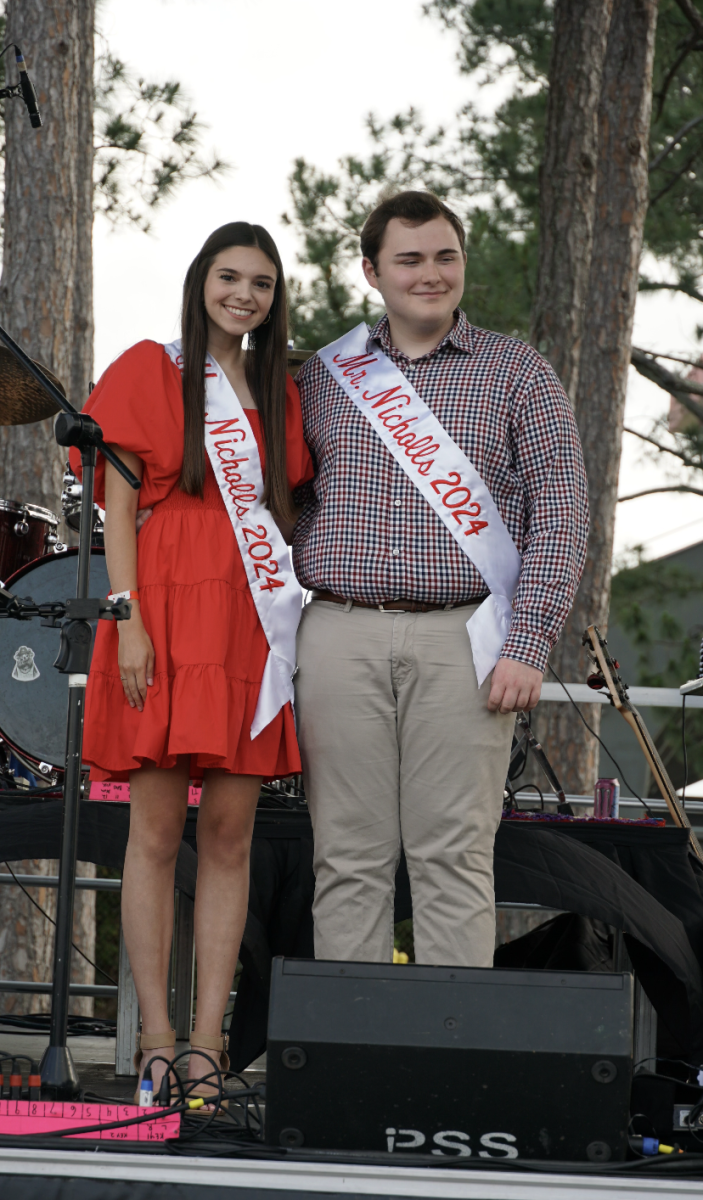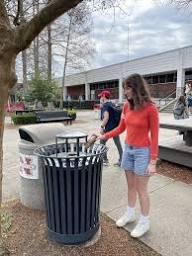Monique Boudreaux didn’t know a thing about the subject.
When a UCLA professor convinced her to take his introductory psychology class during her first semester in college, she decided to give it a shot.
“I was lucky to have a phenomenal teacher who motivated me and birthed an interest in psychology,” Boudreaux said. “It was amazing to me how you can study human behavior from a scientific perspective. I knew that’s what I wanted to do from then on.”
The rest, as they say, is history. She would become a psychology professor herself, eventually making her way to Nicholls this semester. She specializes in the area of personality.
Through her experience and expertise in the field of psychology, Boudreaux also serves as an FBI consultant. She helps the agency solve cases dealing with missing children, including ways to find the child alive, the child’s remains and/or the criminal offender.
Boudreaux meets with eight other consultants around the nation three to four times a year in Quantico, Va. at the FBI Academy. She does most of her daily work and research at home when the FBI sends her resources and data through facsimile and telephone. The FBI sends limited information, excluding names.
“Sometimes [the work] comes in spurts, other times it gets kind of quiet for a while,” she said after she researched and coded more than 80 cases during her first week at Nicholls. “I don’t want names so I can be as objective as I can while I’m working on them.”
Boudreaux has helped solve hundreds of cases, but she was not involved with the recent Elizabeth Smart case that flooded the national media because she was on vacation. She couldn’t have been more pleased with the results, though.
“Whenever it comes out that way and the child is found alive, you’re overjoyed,” she said. “Many times, you don’t truly expect it.”
Boudreaux’s journey to success was not an easy one as she spent years of extensive training and research. But she said she wouldn’t trade it for anything.
After earning her master’s degree in psychology from UCLA in 1993, Boudreaux aspired to pursue a doctorate degree. Since UCLA did not have a Ph.D. forensic psychology program, Boudreaux started one on her own and eventually earned a doctorate in 1996. She would later earn a master’s degree in counseling psychology from Harvard University in 1999.
While she took classes at UCLA related to psychology, law, public health and child abuse, her interest in crimes against children grew. It became a career path Boudreaux knew she would take. “I just fell in love with dealing with children when I studied them because they are so adorable,” she said. “I truly wanted to focus my time on that area of the population.”
As Boudreaux focused on crimes against children and started taking more classes geared toward children’s issues, an internship opportunity opened up with the FBI. One of her students recommended she apply for it, knowing Boudreaux’s growing passion for researching abduction cases.
“The deadline was closing in,” she said. “I rushed over there, got the application, filled out the basic pages and turned it in. I mean it was just in time.”
Impressed by her credentials, a local FBI agent recommended that she fill out the rest of the intense 40-page application. After being accepted locally, her application was forwarded to the main headquarters in Washington, D.C. where she was accepted to serve her internship at the FBI Academy in Quantico, Va. during the summer.
Upon arrival, she met an investigator who was interested in predicting how criminal offenders dispose of victims’ remains, and how to create quicker search methods to possibly find the victims alive. Since she was interested in dealing with children, she tried to find a way to merge the two practices together.
“I was already interested in children, but that’s how my interest in child abduction and murder came about,” she said. “So many children were missing that we needed to find them faster. Hopefully we find them alive, but if not, at least find the remains quick enough to preserve evidence to apprehend the offender.”
Since then, she has continued to help the FBI solve many child abduction cases throughout the nation.
Born and raised in the Los Angeles area, Boudreaux moved to Houma after she married a police officer she met from there during a class at UCLA following her internship. She describes the criminal psychology class as “not the most romantic place to meet someone, but it worked.” Since Nicholls was close, she applied and was accepted to teach this semester.
Boudreaux said she is thrilled to be at Nicholls, and she hopes to stay as long as she can. “The people here are so friendly,” the mother of two said. “It’s nice to work in a place where people have true affection for the people they work with.”
Coming from larger universities as a student, Boudreaux said the small class sizes at Nicholls are beneficial. “I always said if I were to teach, I would want to have better interaction with students with smaller classes,” she said. “That also allows me to learn from my students as well as them learning from me.”
When Boudreaux arrived at Nicholls, she noticed a few unique T-shirts on campus that read “Harvard On the Bayou.” Amused by the slogan, she sent a few of them to her friends at Harvard and said they are “proudly wearing those shirts through the streets of Boston.”
One thing Boudreaux believes in the most is sharing the knowledge she has gained through her experiences.
Many of Boudreaux’s articles with tips on how to protect children from abductors have been published in several magazines and journals. Her most recent article will appear in Parenting Magazine soon. While the tips have been helpful to parents and caregivers, Boudreaux aspires to put all of her ideas and suggestions together in a book or two.
“Children are too young to protect themselves and can’t be responsible for recognizing what is dangerous or not,” she said. “It’s our job as caregivers to see that they are protected. We need to know what the risks are and how to prevent them from being in danger.”


![Assistant coach Cody Livingston [#53] talking with pitcher Nico Saltaformaggio [#38] on the mound(5/12).](https://thenichollsworth.com/wp-content/uploads/2024/05/LivingstonNicoHuddle-vs-Lamar-1200x800.jpg)




